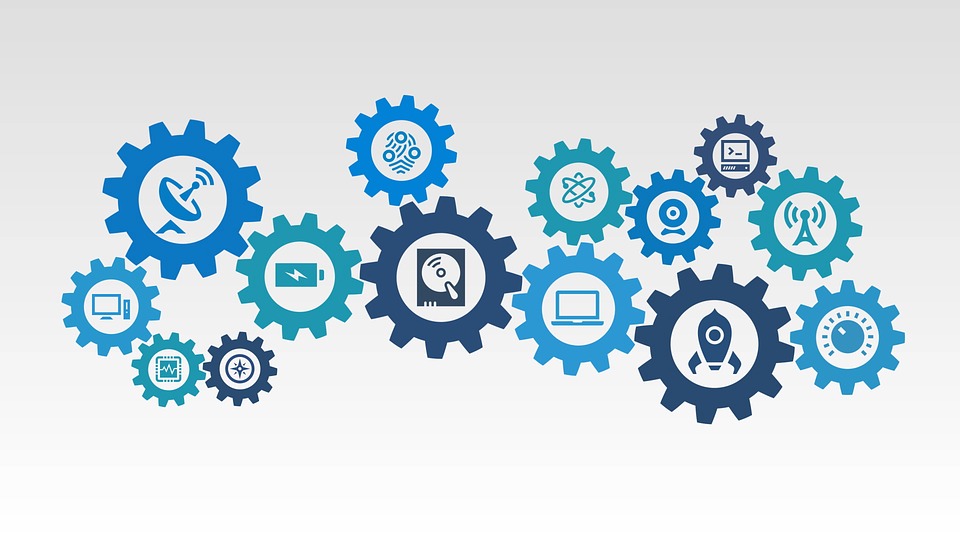Unpacking The Buzz Around AI Undress Generator Reddit Discussions
The internet, a very vast place, brings forth many new ideas, some good, some not so good. Lately, there's been a lot of talk, particularly on platforms like Reddit, about something called an "AI undress generator." This tool, or rather, the idea of it, is causing quite a stir, and it's something many people are trying to make sense of. We are going to look at what this chatter is about, what it means for folks, and why it's a big deal for everyone, really.
It's interesting how quickly some AI creations get attention, isn't it? These generators, which are a type of generative AI, are able to make pictures that seem to show people without clothes, even when the original picture had them fully dressed. This capability, so it seems, brings up a whole host of concerns, from how we see privacy to what is right and wrong in the digital world. The discussions on Reddit, in a way, show how varied people's thoughts are on this matter.
Many folks, you know, are worried about the harm these kinds of tools might cause. There's a lot of talk about how they could be used to create images of people without their say-so, which is a very serious issue for personal boundaries and safety. We'll explore these worries and try to shed some light on what is going on with these AI undress generator reddit conversations.
Table of Contents
- What is an AI Undress Generator and Why is Reddit Talking About It?
- The Ethical Maze of Generative AI
- How These Tools Work: A Quick Look
- Protecting Yourself in the AI Age
- Community Response and the Future
- Frequently Asked Questions About AI Undress Generators
- Looking Ahead with AI and Responsibility
What is an AI Undress Generator and Why is Reddit Talking About It?
An "AI undress generator" is, simply put, a piece of software that uses artificial intelligence to change pictures of people. It can, in some cases, make it look like someone is not wearing clothes, even if they were fully clothed in the original photo. This is done by the AI predicting what skin or body parts might look like underneath clothing. Reddit, a platform where people share all sorts of things and talk about them, has become a place where these tools are discussed quite a bit, honestly.
The interest on Reddit stems from a few things. Some people are just curious about what AI can do, you know, the technical side of it. Others are sharing their worries about the potential for harm, like creating fake images without consent. There are also discussions about the legality of such tools and whether they should even exist. It's a very active conversation, to say the least, reflecting a wider public debate about AI's boundaries.
The sheer volume of these discussions, you see, points to a broader concern about how generative AI is developing. It's not just about this one type of tool, but about the bigger picture of AI making things that look real but are not. This, in a way, makes people think more about what is coming next in the world of digital creations.
The Ethical Maze of Generative AI
When we talk about AI that can create images like these, we quickly run into some very tricky questions about what is right and wrong. Ben Vinson III, president of Howard University, made a very important point about AI needing to be “developed with wisdom.” This idea, so it seems, really hits home when we look at tools that can be used in ways that hurt people. The creators of AI, in a way, have a big job to do, making sure their creations are helpful, not harmful.
The discussion about these generators often comes back to the core idea of ethics in AI. It's not just about whether something can be built, but whether it should be built. This is a question that many researchers and thinkers are grappling with today, especially as AI gets more powerful. The "hard part is everything else," as some researchers suggest, meaning the real challenge is dealing with the consequences of AI, not just making it work.
Privacy Concerns and Misuse
One of the biggest worries, truly, is about privacy. Imagine if someone could take a picture of you, maybe from social media, and use an AI tool to make it look like something it's not. This could be very upsetting and, in some cases, could cause real damage to a person's reputation or sense of safety. The thought of this, you know, makes many people feel quite uneasy.
The misuse of these generators is a very serious matter. They can be used to create what people call "deepfakes," which are fake images or videos that look very real. These deepfakes can be used for harassment, blackmail, or just to spread false information. This is why discussions on Reddit often turn to how to stop such misuse and what the rules should be around these technologies. It's a bit of a tricky situation, to be honest.
The idea of an AI that actively refuses answering a question unless you tell it that it's okay to answer it via a convoluted setting, as mentioned in "My text," highlights a user experience issue that could also apply here. If these tools are hard to control or if their misuse is not prevented by design, it becomes a bigger problem for everyone. It's about designing AI with safeguards, really, from the start.
The Human Impact
The effect on people, particularly those who might become targets of such images, can be very, very bad. It can cause a lot of emotional distress, fear, and a feeling of being exposed without consent. This is not just a technical problem; it's a human one. When AI is used in ways that harm people, it goes against the idea of AI being a tool for good.
The conversations on Reddit, you know, often include stories or concerns from people who are worried about themselves or their loved ones. This brings a very human element to the discussion, reminding us that behind the technology are real people with real feelings. It is, in a way, a call for more thoughtful AI development.
The environmental and sustainability implications of generative AI technologies are also worth thinking about, as "My text" points out. While not directly about undress generators, the energy used to train and run these powerful AI models is significant. This means that even the creation of these tools has a footprint, which is another layer to the discussion about their overall impact.
How These Tools Work: A Quick Look
Generally, these AI undress generators use a type of AI called a Generative Adversarial Network, or GAN. One part of the AI makes the fake image, and another part tries to tell if it's fake or real. They learn from each other, getting better and better at making very convincing images. This process is, you know, quite complex.
The AI is trained on a huge amount of data, which includes many, many pictures. This helps it learn what different body parts look like and how clothes might drape over them. Then, when you give it a new picture, it tries to "imagine" what's underneath based on what it has learned. It's, in a way, like a very advanced digital artist, but with a very specific, and often problematic, purpose.
The underlying methods often combine probabilistic AI models, as mentioned in "My text" about other AI advancements. This means the AI isn't just following strict rules; it's making educated guesses based on probabilities, which can lead to surprisingly realistic, yet completely fabricated, results. This is why, you know, they can be so convincing.
Protecting Yourself in the AI Age
Given the existence of such tools, it's a good idea to be mindful of your digital footprint. Think about what pictures you share online and with whom. While it's hard to completely prevent someone from trying to misuse your image, being careful can help. This is, you know, just a practical step.
If you ever come across an image of yourself or someone you know that you suspect was made with one of these tools, it's important to know what to do. Many platforms have ways to report such content. Taking action can help remove harmful images and prevent their spread. It's about taking back some control, really.
Staying informed about how AI works and what its limits are can also be helpful. The more you know, the better you can understand the risks and protect yourself. For instance, knowing that AI can shoulder the grunt work, but that the "hard part is everything else," as a researcher from "My text" says, means we must focus on the ethical implications as much as the technical ones. Learn more about AI ethics on our site.
Community Response and the Future
The Reddit community, along with many other groups, is actively discussing ways to combat the misuse of these AI tools. There's a strong push for platforms to have better ways to detect and remove deepfakes. This kind of collective action, so it seems, is very important for keeping the internet a safer place for everyone.
Many people believe that the creators of AI tools have a big part to play in preventing harm. This means building safeguards into the technology itself, making it harder for it to be used for bad purposes. It's about making sure that AI is developed with wisdom, as Ben Vinson III put it, and that its purpose is always for the good of people.
The future of AI, you know, depends a lot on how we choose to develop and use it. If we focus on making AI that helps people, that frees developers to focus on "creativity, strategy, and ethics," as suggested by "My text," then we can build a better digital world. But if we ignore the potential for harm, then we risk facing more problems like those brought up by the AI undress generator reddit discussions. This is a very real challenge for our time.
There are efforts to create tools that can detect deepfakes, which is a good step. These tools use AI to spot the tell-tale signs that an image has been altered. This is, you know, a bit like a digital detective. You can find out more about the broader issue of deepfake technology and its impact here.
Frequently Asked Questions About AI Undress Generators
Are AI undress generators legal?
The legality of these tools is a very complex issue and it varies a lot depending on where you are. In many places, creating or sharing non-consensual intimate images, even if they are fake, is against the law and can have very serious consequences. It's important to check the specific laws in your area, you know, before doing anything.
How can I tell if an image was created by an AI undress generator?
It can be very hard to tell, as AI-generated images are getting better all the time. Sometimes, there might be small oddities, like strange details in the background or unusual textures on the skin. There are also tools and techniques being developed to help detect deepfakes, but it's a constant race between creators and detectors. This is, you know, a tricky area.
What should I do if I find a non-consensual AI-generated image of myself or someone I know?
If you find such an image, it's very important to report it to the platform where you found it right away. Most social media sites and online services have clear policies against non-consensual intimate imagery and deepfakes. You might also want to consider talking to legal experts or support organizations that help victims of online abuse. It's a very serious matter, and getting help is key.
Looking Ahead with AI and Responsibility
The conversations around "ai undress generator reddit" serve as a very strong reminder that AI, while powerful, needs to be handled with great care. It's not just about what the technology can do, but what we, as people, allow it to do. This means having open discussions, setting clear rules, and making sure that AI is built with good intentions from the start. We, as a society, have a big part to play in shaping this future.
The goal, you know, isn't to replace programmers or stop AI progress, but to make sure that this progress happens in a way that benefits everyone and respects individual rights. The idea of an AI that can shoulder the grunt work without introducing hidden failures, as mentioned in "My text," applies here too. We need AI that is reliable and doesn't cause unexpected harm. This is, in a way, the true measure of its success. Learn more about generative AI applications on our site.

BIBLIOTECA EPB: Celebracións do Día da paz

AI driven analysis of PD-L1 lung cancer in Southampton

OpenAI Codex CLI: 터미널에서 만나는 AI 코딩 에이전트